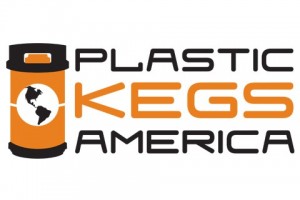
The review comes after numerous reports of explosive failures involving kegs manufactured by Plastic Kegs America (PKA). Those incidents started to come to light following the death of a Redhook Brewery employee in April, 2012; as the year has gone on, complaints about PKA reports have accelerated. The BA said it has received reports from 18 breweries involving 38 kegs that did not “fail safe” and exploded, created dangerous situations for brewery employees. To date, none of the reports involved plastic kegs manufactured by companies other than PKA.
In a note posted to the BA Forum on Dec. 12, representatives from the organization informed members of the safety review. In early 2013, the BA said, it hired Bilfinger Industrial Services (BIS) to engage with all manufacturers of kegs and keg components, asking the company to create a set of guidelines detailing safety parameters and performance of two-way and reusable plastic kegs.
While noting that “the law limits the ability of BA to for or require brewers to purchase, or not purchase, specific equipment,” the organization further said that the guidelines will “provide BA brewery members with a basis to make their own educated and enlightened decisions regarding keg safety and performance when sourcing and purchasing kegs.” (The post, in its entirety, is printed below.)

“The draft guidelines are due to be published at the end of January of 2014 and so it is premature for us to comment until all the information is in the public domain,” he wrote in an email.
The maximum working pressure for plastic kegs manufactured by PKA is 61 PSI and the kegs will fail at 90 PSI or above, Wheaton said. (Stainless steel kegs, the leading alternative, have been determined to be capable of withstanding much higher pressures).
Many brewers that Brewbound spoke with said they were concerned that plastic kegs would rupture at pressures much lower than 60 PSI, however.
“If you are putting pressure above 10-12 PSI, you should definitely be concerned,” said Joey Redner, the founder of Cigar City Brewing, said that he personally witnessed a keg failure while it was being cleaned at his brewery. Redner had been standing next to a plastic keg when it exploded near his head. He said he stopped purchasing kegs from PKA in July of last year due to safety and financial concerns, and that he is currently in the process of phasing the kegs out of use.
Redner also said that he’s looking forward to seeing the results of the BA’s performance review.
“It needed to be done,” he said. “When you look at their mission statement, it fits right in. If they can prevent things that are bad to the industry from happening, it definitely fits right into the wheelhouse of what their mission statement is.”
Plastic kegs have gained a foothold among brewers because of their lower price compared to steel kegs. PKA claims that it has sold over 500,000 kegs and that its products are 55 percent cheaper than stainless steel kegs.
As the craft beer industry continues evolving at a torrid pace (there are now 2,707 U.S. craft breweries), a large number of the new breweries are fighting a cash crunch as they try to get off the ground.

“If you are doing large scale production, there are a number of reasons why they don’t make sense,” said Hayes Humphreys, the COO at Devils Backbone Brewing. “The wear and tear was the biggest thing for us. They get so beat up that you end up buying them more frequently. In the end, the upfront price might not be as cost-effective as people think.”
“A lot of breweries starting up have facilities that are built by hand and cobbled together,” he added. “The breweries aren’t always put together in a totally professional way. Unless you are 100 percent confident in what you put together, plastic kegs are just another risk factor and you are introducing one more fail point.”
And while many brewers are removing the kegs because of safety and durability concerns, they also aren’t willing to resell them.
“I wouldn’t want to put these out there for anyone else to use,” said Chris Levesque, the general manager of Front Street Brewery in Wilmington, North Carolina. “I just don’t think it would be the right thing to do.”
The BA said it expects to publish the first BIS report detailing performance and safety parameters by the end of Jan., 2014.
The full BA Forum post is below:
To date, the Brewers Association (BA) has received reports from 18 breweries of explosive failures involving 38 kegs manufactured by Plastic Kegs of America. These kegs did not “fail safe” but rather created dangerous situations due to fragmentation of the kegs. Tragically one of these incidents in April 2012 resulted in the death of Redhook Brewery employee Ben Harris. To date, BA has not received reports of explosive failure of plastic kegs manufactured by other companies.
While the BA does not have first-hand knowledge of these incidents, or similar incidents in the past, we have been told of explosions involving brand new kegs, kegs being cleaned at pressure levels below the maximum recommended by their manufacturer or kegs that simply exploded while in storage.
The reports we have received have raised serious questions about the safety of these products. Accordingly, in early 2013 BA retained Bilfinger Industrial Services (“BIS”) as subject experts to develop keg performance and safety guidelines for use by all US brewing industry stakeholders. BA anticipates that the first set of these guidelines detailing safety parameters and performance expectations of two way, or reusable, kegs will be available by the end of January 2014.
The second set of guidelines, detailing safety and performance expectations of one way, or non-returnable, kegs is in development and will follow soon after. Ultimately, both sets (two way and one way) of guidelines will be updated to include quality issues including compatibility of materials and flavor impact on beer.
As an industry trade association, the law limits the ability of BA to force or require brewers to purchase, or not purchase, specific equipment. But the guidelines will provide BA brewery members with a basis to make their own educated and enlightened decisions regarding keg safety and performance when sourcing and purchasing kegs. The guidelines will evolve as flexible living documents, able to respond to rapidly changing technologies as well as the availability of technical information. These guidelines will be available to all US brewing industry stakeholders including all brewers large and small, keg, valve and chemical suppliers, keg cleaning and filling line suppliers, wholesalers and retailers.
The BA continues to collect relevant information from brewers, manufacturers, and others, and we urge you to provide us with any further information you may have that will help us in the continued development of the guidelines or the advancement of keg and brewery safety.
The BA and our third-party subject experts BIS remain engaged with all manufacturers of kegs and keg components.
Please note, any brewer or keg user with first-hand knowledge of keg explosion incidents can also report those incidents to the U.S. Consumer Product Safety Commission.